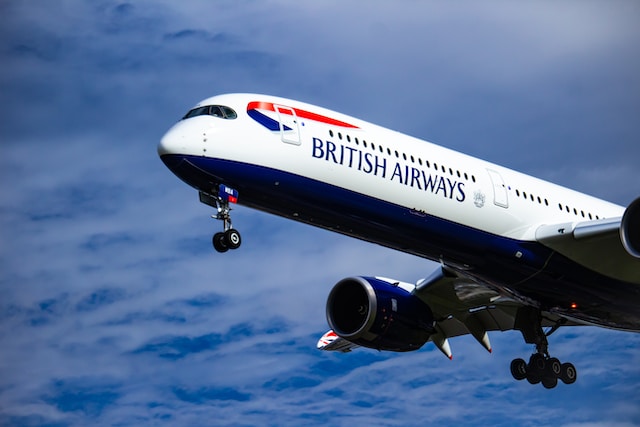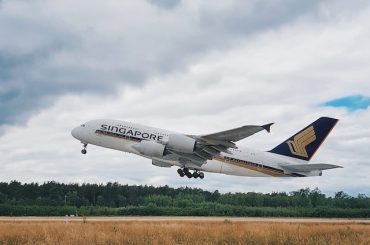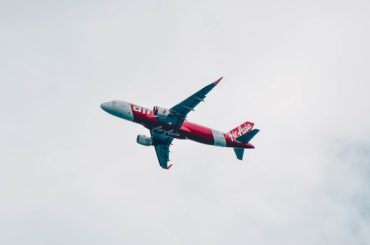Before we dive deep into the PESTEL analysis, let us get the business overview of British Airways. British Airways (BA) is the flag carrier airline of the United Kingdom and one of the world’s leading airlines. It is headquartered in London, England, and has its central hub at London Heathrow Airport.
Founded in 1974 through the merger of four airlines, including British Overseas Airways Corporation (BOAC) and British European Airways (BEA), British Airways is a founding member of the Oneworld airline alliance, established in 1999.
In January 2011, British Airways merged with Iberia, creating the International Airlines Group (IAG), a holding company registered in Madrid, Spain. IAG is the world’s third-largest airline group in annual revenue and the second-largest in Europe.
Operating a fleet of wide-body and narrow-body aircraft, British Airways serves over 180 destinations across more than 80 countries worldwide. The airline offers a mix of domestic, short-haul, and long-haul services, catering to both business and leisure travelers.
British Airways’ business can be divided into several segments:
- Passenger Services: This is the core of BA’s operations, providing scheduled air transport services for passengers. The airline offers various cabin classes, including First Class, Club World (business class), World Traveller Plus (premium economy), and World Traveller (economy class).
- Cargo Services: British Airways World Cargo is responsible for transporting freight and mail on BA’s passenger aircraft. The cargo division serves a global network and offers various logistics solutions for customers.
- Loyalty Program: The British Airways Executive Club is the airline’s frequent flyer program, which allows members to earn and redeem Avios points for flights, upgrades, and other services. Members can also access partner services and benefits from Oneworld alliance members.
- Ancillary Services: BA offers a range of additional services, such as car rentals, hotel bookings, travel insurance, and airport lounge access, to enhance the overall travel experience for its customers.
Financial Performance: In 2023, British Airways generated around 14.3 billion British pounds in revenue and reported a net profit of 1.166 billion British pounds.
Here is the PESTEL analysis of British Airways
A PESTEL analysis is a strategic management framework used to examine the external macro-environmental factors that can impact an organization or industry. The acronym PESTEL stands for:
- Political factors: Relate to government policies, regulations, political stability, and other political forces that may impact the business environment.
- Economic factors: Deal with economic conditions and trends affecting an organization’s operations, profitability, and growth.
- Sociocultural factors: Relate to social and cultural aspects that may influence consumer preferences, lifestyles, demographics, and market trends.
- Technological factors: Deal with developing and applying new technologies, innovations, and trends that can impact an industry or organization.
- Environmental factors: Relate to ecological and environmental concerns that may affect an organization’s operations and decision-making.
- Legal factors: Refer to the laws and regulations that govern businesses and industries.
In this article, we will do a PESTEL Analysis of British Airways.
PESTEL Analysis Framework: Explained with Examples
Political
- Government Regulations: The airline industry is heavily regulated by both domestic and international governments. These regulations can impact how British Airways operates and the cost of operations. This includes safety regulations, labor laws, and regulations about the environment.
- Political Stability: A country’s political stability level can affect British Airways’ operations. For instance, in countries with unstable political situations, flights may be canceled or delayed, which can financially impact the airline.
- Bilateral Aviation Agreements: The ability of British Airways to expand its flight network is influenced by international agreements between the UK and other countries. For instance, Open Skies agreements can allow the airline to add new routes and increase frequencies.
- Brexit: The UK’s exit from the European Union (Brexit) has had significant implications for British Airways. This has included changes in aviation agreements, regulations, and the freedom to operate across Europe. It also impacts the labor movement and how the company deals with its European workforce.
- Tax Policy: Government tax policy is another political factor. Changes in tax laws, such as increases in Air Passenger Duty (APD) in the UK, can affect ticket prices and demand for air travel.
- Trade Policies and Tariffs: Changes in trade policies and tariffs, particularly post-Brexit, could impact the cost of aircraft and parts, potentially increasing operational costs for British Airways.
- International Relations: Relationships between the UK and other nations can also affect British Airways. For example, tensions or conflicts can lead to the closure of airspaces, which can disrupt routes and increase costs.
- Security Laws: Security laws and measures also affect airlines. Changes in these laws can impact operational processes and costs, as airlines must comply with the latest security measures to ensure passenger safety.
Economic
- Global Economy: The performance of the global economy significantly impacts airlines. In times of economic growth, people and businesses are more likely to spend on air travel. Conversely, during recessions, demand for air travel often decreases. For instance, the global economic downturn caused by the COVID-19 pandemic severely impacted the entire airline industry.
- Exchange Rates: British Airways earns revenue in many different currencies, and any fluctuation in the exchange rate can impact the company’s financial results. If the pound is strong, it can make international travel more expensive for UK residents, which could decrease demand for British Airways flights.
- Oil Prices: Fuel is one of the highest costs for any airline, and changes in the price of oil can, therefore, significantly affect British Airways’ profitability. While airlines may use hedging strategies to manage this risk, sudden or dramatic changes in oil prices can still have a considerable impact.
- Inflation Rates: Inflation rates impact operating costs for British Airways. Higher inflation rates can increase the costs of services and goods, leading to higher ticket prices and potentially reducing demand.
- Interest Rates: Interest rates influence the cost of capital for British Airways. High-interest rates increase the company’s financing or loan servicing costs. Also, higher interest rates may reduce consumer spending on non-essential goods and services, including air travel.
- Unemployment Rates: Higher employment levels typically result in increased business and leisure travel. Conversely, high unemployment rates can decrease demand for air travel as disposable income decreases.
- Income Levels: Changes in real income affect the quantity and quality of air travel consumers’ demand. If income levels rise, consumers are likelier to choose premium offerings such as business-class seats.
Sociocultural
- Changing Travel Habits: Sociocultural changes can affect travel habits and preferences. For example, more people prioritize experiences over material possessions, leading to more travel. Furthermore, there’s an ongoing trend towards solo travel, which may affect booking preferences and service demands.
- Environmental Awareness: As societal awareness and concern about environmental issues increase, a trend toward sustainable and responsible travel has grown. Consumers are more aware of the carbon footprint associated with air travel, and some choose to fly less or use airlines offering carbon offset programs. This poses a challenge and an opportunity for British Airways to demonstrate its commitment to sustainability.
- Health and Wellness: The increased focus on health and wellness in society might influence passenger expectations during flights, including the quality of in-flight meals and the availability of comfort-enhancing features like extra legroom. The COVID-19 pandemic also heightened expectations for hygiene and safety measures, which are likely to remain a significant concern for passengers.
- Aging Population: In many developed countries, the population is aging. This demographic shift can affect the demand for specific services and amenities, such as an increased need for accessibility features or preferences for certain travel destinations.
- Cultural Diversity: As a global airline, British Airways serves customers of different cultures, languages, and traditions. The airline must understand and cater to these diverse needs, whether offering multilingual services, respecting cultural sensitivities, or providing international cuisine options.
- Work Culture: Changes in work culture and the rise of digital nomads and remote work could increase demand for air travel as more people can work from anywhere.
Technological
- Digital Technology: The rise of the internet and digital technology has dramatically impacted the airline industry. Customers increasingly expect the ability to book and manage their flights online or through mobile apps, requiring airlines to invest in user-friendly digital platforms. British Airways has made considerable strides in this area, providing online and mobile services for booking, check-in, seat selection, and more.
- In-flight Entertainment and Connectivity: There is an ongoing demand for enhanced in-flight entertainment options and reliable internet connectivity during flights. British Airways needs to keep up with these technological advancements to meet customer expectations and stay competitive.
- Data Analytics: With the growth of big data, there are opportunities to leverage customer data to personalize offerings and improve customer service. It can also help optimize operations and identify growth opportunities.
- Artificial Intelligence (AI) and Automation: AI can automate various customer service functions, like chatbots for handling customer inquiries. Automation can also improve operational efficiency in baggage handling or check-in procedures.
- Sustainability Technology: Technological advancements in aircraft design and fuel efficiency can help reduce the environmental impact of flights. There’s ongoing research into more sustainable aviation fuels and even electric planes, which British Airways must consider as part of its long-term strategy.
- Safety and Security Technology: Technological advancements can improve safety and security, both crucial aspects of airline operations. For instance, improvements in aircraft design, maintenance technology, and flight tracking systems can enhance safety, while technology like biometrics can speed up and secure the passenger identification process.
- Virtual and Augmented Reality (VR/AR): These technologies offer potential new ways for airlines to enhance the customer experience, from virtual tours of aircraft and travel destinations to augmented reality in-flight entertainment.
- Blockchain Technology: Although emerging, blockchain technology could impact the airline industry in areas like ticketing, loyalty programs, and supply chain management.
Environmental
- Carbon Emissions: The aviation industry contributes significantly to carbon emissions, which has led to criticism and increased regulatory scrutiny. British Airways, like other airlines, faces the challenge of reducing its carbon footprint while continuing to grow. It also faces increasing customer awareness and demand for more sustainable travel options.
- Noise Pollution: Aircraft noise is a significant environmental issue, particularly for communities living near airports. Regulations to reduce noise pollution may impact operational practices, such as flight paths and times.
- Sustainable Aviation Fuel (SAF): The development and use of SAF is a key area where British Airways can substantially impact its environmental footprint. However, the widespread use of SAF faces challenges, including availability, cost, and the need for further technological advancements.
- Waste Management: Airlines generate substantial waste, from food to disposable items like plastic cutlery and cups. Managing and reducing this waste is a significant environmental challenge.
- Natural Disasters and Climate Change: Climate change and increased severe weather events can disrupt airline operations, causing flight delays or cancellations. Over the long term, climate change could even affect the viability of some current routes or airports.
- Biodiversity: Aircraft can have an impact on local wildlife, particularly birds. Bird strikes are dangerous to aircraft and can harm local bird populations.
Legal
- Airline Regulations: There are extensive regulations governing airline operations, from safety standards to employment laws. These include regulations set by the Civil Aviation Authority (CAA) in the UK, the European Union Aviation Safety Agency (EASA), and the Federal Aviation Administration (FAA) in the US.
- International Laws: As an international airline, British Airways must comply with the laws and regulations of all its countries. These can cover a wide range of issues, from airspace rights to data protection.
- Employment Laws: British Airways must comply with labor laws, which can differ significantly from one country to another. These laws cover wages, working conditions, and employee rights. Changes in these laws can impact the company’s labor costs and practices.
- Environmental Regulations: Given the environmental impact of aviation, airlines are subject to various environmental regulations. These can include regulations on emissions, noise pollution, and waste management. Non-compliance can result in significant penalties.
- Consumer Protection Laws: Airlines are subject to various laws protecting the rights of consumers. These can include regulations on flight cancellations, delays, and baggage handling, among other things.
- Brexit: The UK’s departure from the European Union has resulted in significant legal changes for British Airways. These include changes to aviation agreements, employment laws, and data protection regulations.
- Tax Laws: British Airways must comply with tax laws in all its jurisdictions. Changes in these laws can impact the company’s tax liabilities and profitability.
- Antitrust Laws: As a large airline, British Airways must also be mindful of antitrust laws that promote fair competition.











